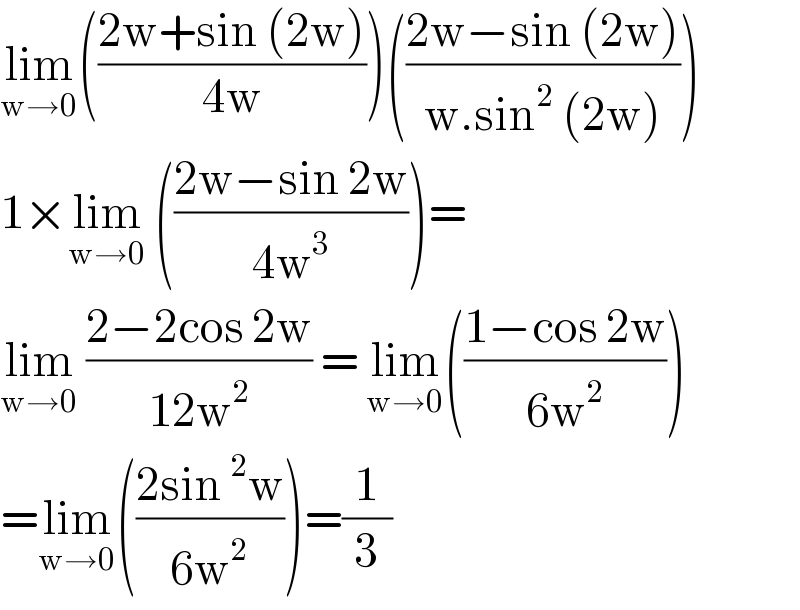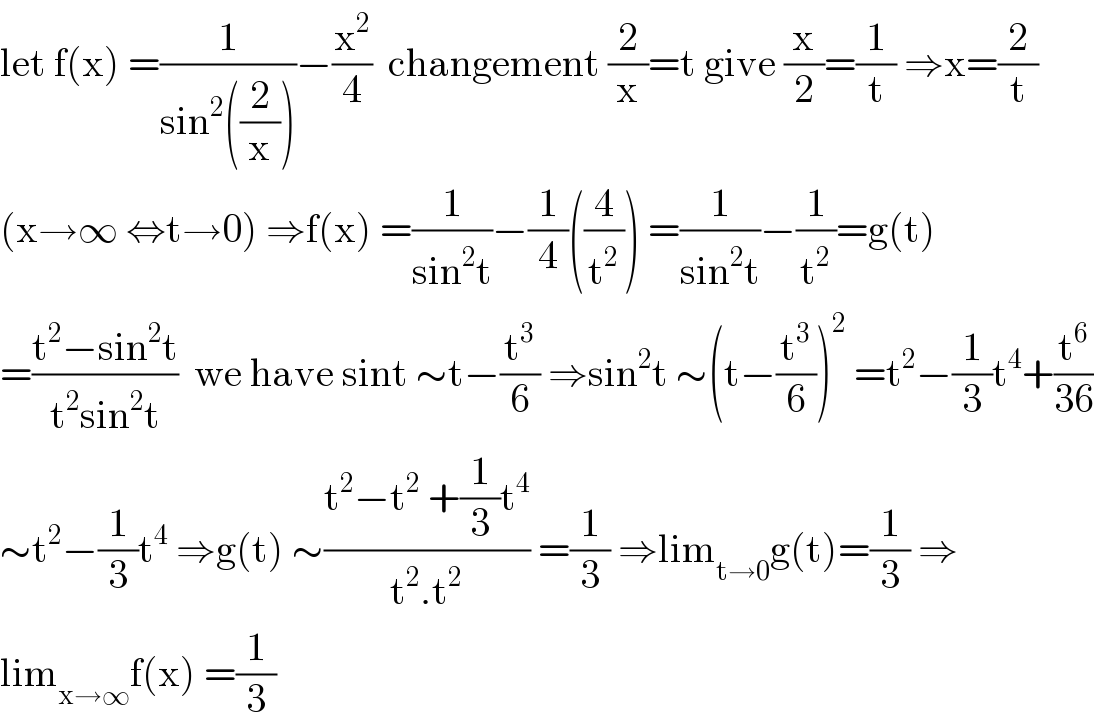
Question and Answers Forum
Question Number 112917 by abdullahquwatan last updated on 10/Sep/20
![lim_(x→∞) [csc^2 ((2/x))−(1/4)x^2 ]](Q112917.png)
Commented by bobhans last updated on 10/Sep/20

Commented by abdullahquwatan last updated on 10/Sep/20

Commented by abdullahquwatan last updated on 10/Sep/20

Answered by mathmax by abdo last updated on 10/Sep/20

Commented by abdullahquwatan last updated on 10/Sep/20

Commented by mathmax by abdo last updated on 11/Sep/20

